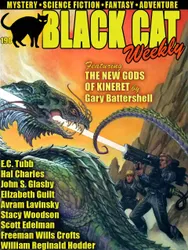In the deftly woven narrative 'The Hog's Back Mystery', Freeman Wills Crofts presents a classic whodunit that unravels on the serene English countryside, disturbed by a series of cryptic disappearances. With its intricate plotting and Crofts's hallmark attention to the mechanics of alibi and timetable, the novel exemplifies the Golden Age of Detective Fiction, aligning with the era's penchant for puzzle over character, and intellect over violence. The precise, clear prose and scrupulous detective work are testament to both the literary style and technical expertise Crofts is acclaimed for, situating this work within an esteemed literary context and signaling a meticulous and immersive experience for lovers of traditional mysteries.
Freeman Wills Crofts, a master of the detective genre, was famed for his ingeniously plotted novels that often hinged on the precise details of railway timetables – a reflection of his background as a railway engineer. Writing in the early to mid-20th century, his professional discipline undoubtedly influenced his literary production, manifesting in the cerebral and methodical approaches of his protagonist inspectors. 'The Hog's Back Mystery' showcases Crofts's talent for sustained suspense, where the meticulous unraveling of the puzzle exposes the precision of his craft, possibly mirroring his own experiences and fascination with the interplay between time, location, and event.
'The Hog's Back Mystery' comes highly recommended for readers who delight in the intellectual rigor of classic crime fiction. It is a novel that not only challenges the deductive faculties but also immerses one in an era where the intricate dance of motive, opportunity, and alibi reigns supreme. Scholars and enthusiasts of the genre will appreciate Crofts's ability to create a labyrinthine tale that is both a product of its time and a timeless testament to the allure of the cerebral mystery narrative.











